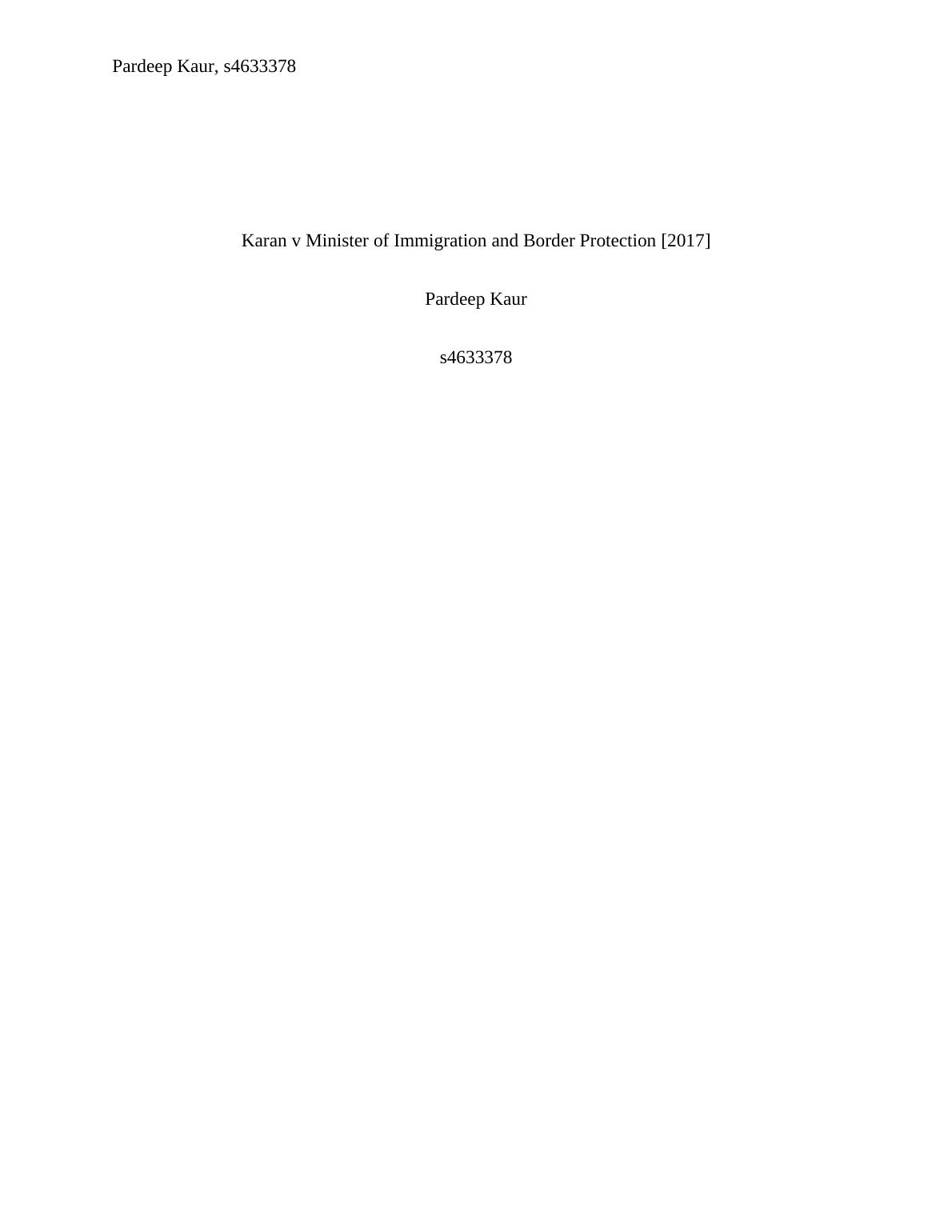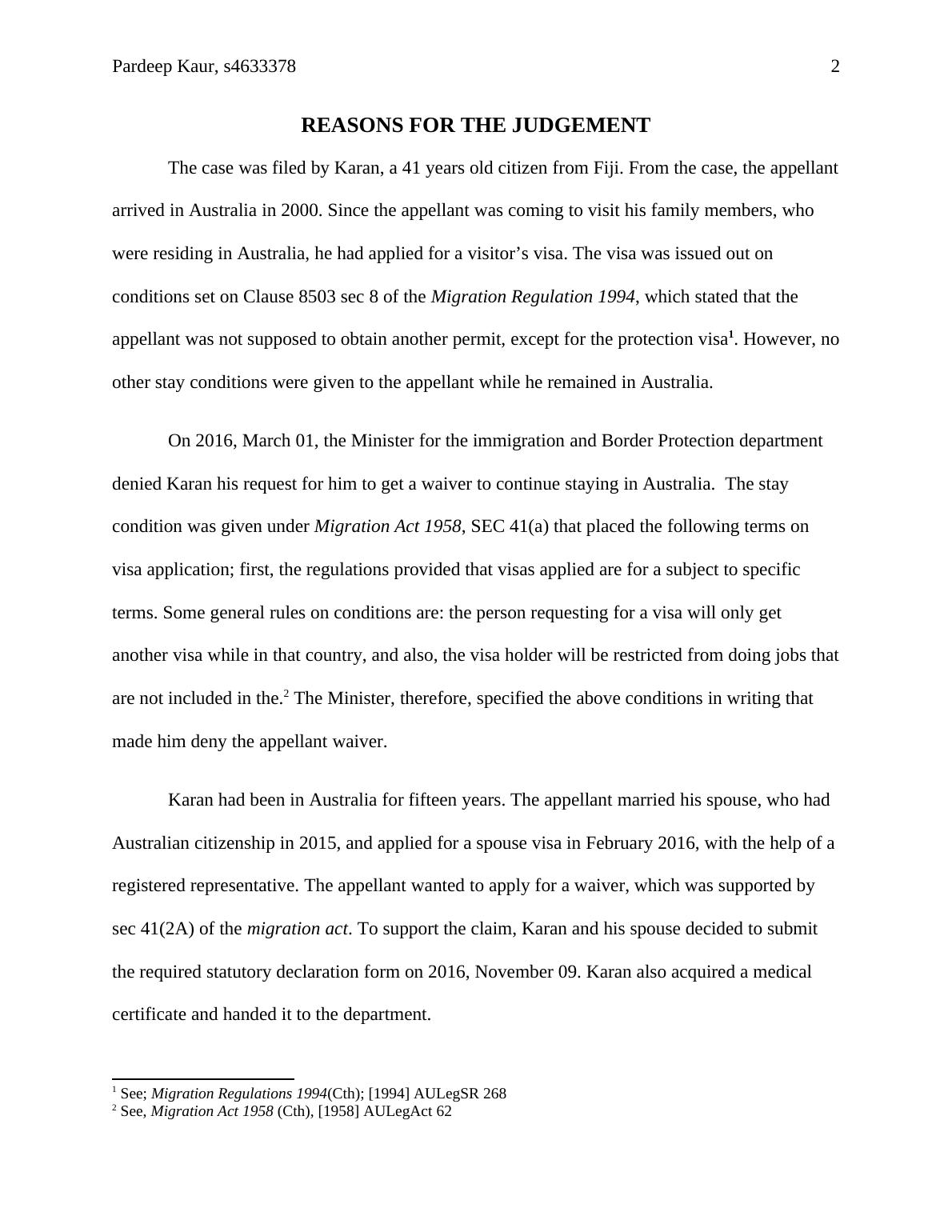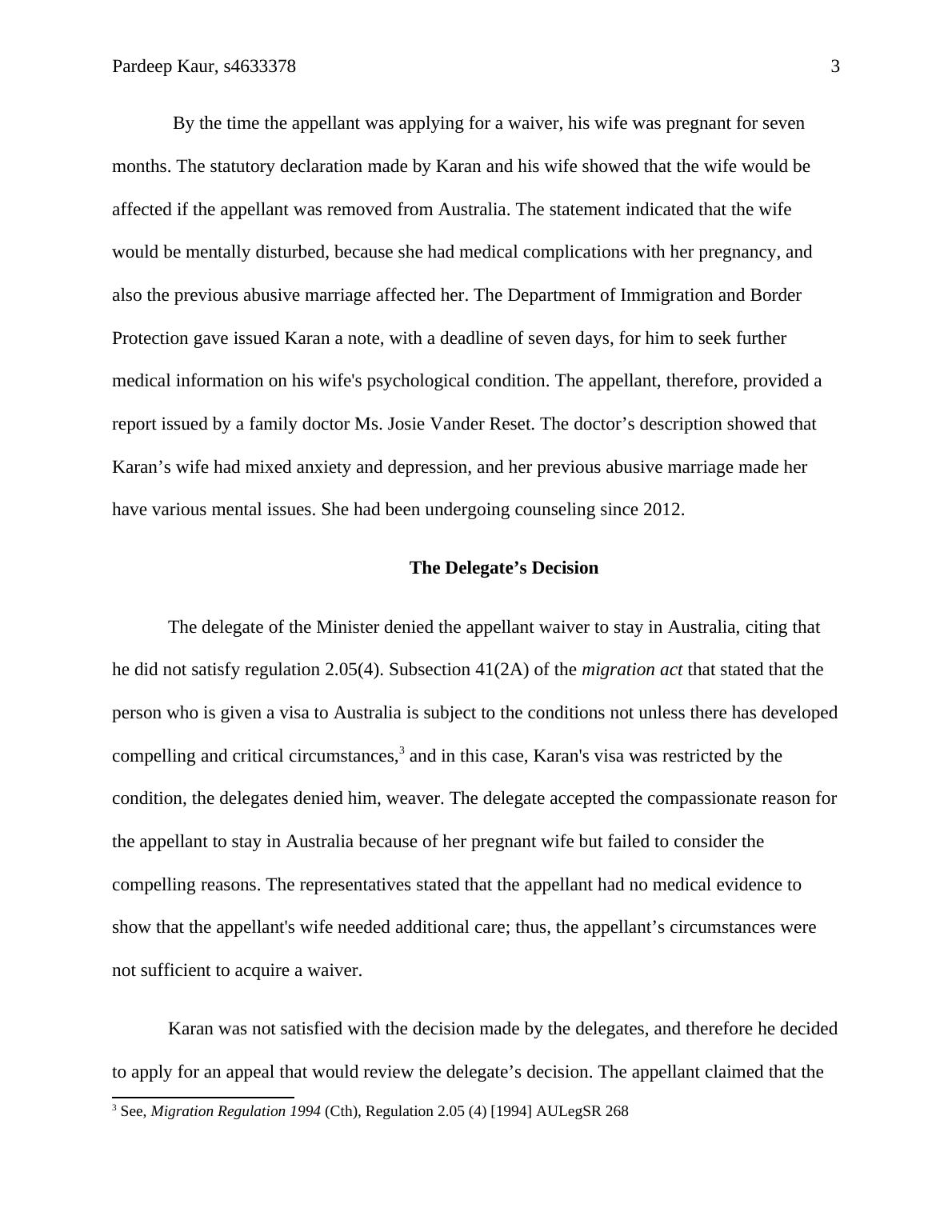Karan v Minister of Immigration and Border Protection
Answering questions related to Australian Migration Law, with a word limit and references to relevant legislative provisions.
6 Pages1323 Words13 Views
Added on 2022-08-18
Karan v Minister of Immigration and Border Protection
Answering questions related to Australian Migration Law, with a word limit and references to relevant legislative provisions.
Added on 2022-08-18
ShareRelated Documents
End of preview
Want to access all the pages? Upload your documents or become a member.
Report on Australian Migration Law & Omara
|8
|1462
|58
Karan v Minister for Immigration and Border Protection
|5
|1125
|63
Migration Law Assignment (doc)
|9
|2245
|42
Migration Law Act 1994 in Australia
|8
|1452
|20
Paper | Migration Law Analysis Assignment
|6
|1091
|462
Court Decision and statutory principles of Judges
|5
|1111
|16



